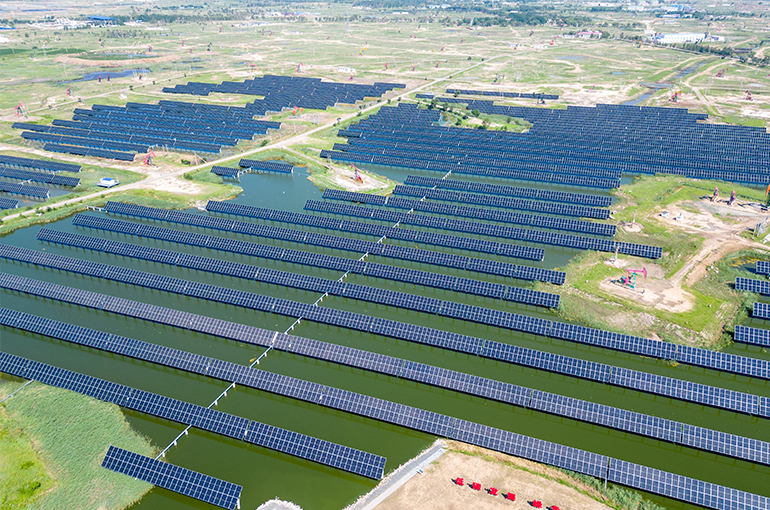 China’s Green Energy Sector Creates Jobs, Brings Economic Rewards, Experts Say at COP29
China’s Green Energy Sector Creates Jobs, Brings Economic Rewards, Experts Say at COP29(Yicai) Nov. 14 -- China’s shift toward green energy is becoming a major driver of job creation and economic benefits, experts said on the sidelines of the COP29 climate summit in Baku, Azerbaijan.
“Renewable energy has shifted from being solely an energy topic to a central focus of economic and industrial attention,” Rana Adib, executive director of the Paris-based global green energy think tank REN21, said in an interview with Yicai.
“China’s leadership in renewables comes from a highly integrated approach across manufacturing, installations, and job creation,” she said. “This integrated strategy underpins a strong economy and resilient industries, making renewable energy a foundation for broader economic and social benefits.”
Investment in renewable energy contributed 7 percent to global gross domestic product growth last year, according to a recent REN21 report. China led the way, accounting for three-quarters of global investment in renewable energy manufacturing.
China’s renewable energy sector employed 7.3 million people last year, a 30 percent jump from 2022, per the report. Workers in renewable energy reached a record 16.2 million globally, up from 13.7 million, with China accounting for 45 percent of these jobs. Among renewables, solar power employs the most, while biofuels and hydropower had 2.8 million and 2.3 million workers, respectively.
“China’s high-quality production capacity in areas such as electric vehicles, lithium batteries, and photovoltaic products significantly accelerates global green development,” Vice Premier Ding Xuexiang pointed out at the climate summit.
Despite these successes, challenges remain. China’s carbon dioxide emissions from coal and natural gas continue to rise alongside increasing electricity demand, though emissions from oil may have peaked due to the growing adoption of EVs, according to a recent report by the Global Carbon Budget Office, part of the Global Carbon Project, an international research initiative.
Replicating China's success requires creating integrated plans, and aligning strategies across energy, climate, industrial, trade, and economic policies, per the office led by Prof. Pierre Friedlingstein of Exeter University in the United Kingdom. This approach must go beyond electrification to include fuel-switching in sectors such as transportation and ensure a shift in energy supply to renewables, the report added.
"The global community must work together to accelerate the energy transition in an equitable, orderly, and just manner, stabilize the industrial and supply chains of new energy, enhance access to green technologies, and advance new productive forces at a faster pace," Ding also said.
COP29 is the 29th gathering of the Conference of Parties that signed the United Nations Framework Convention on Climate Change treaty in 1994. It runs from Nov. 11 to 22.
Editor: Emmi Laine